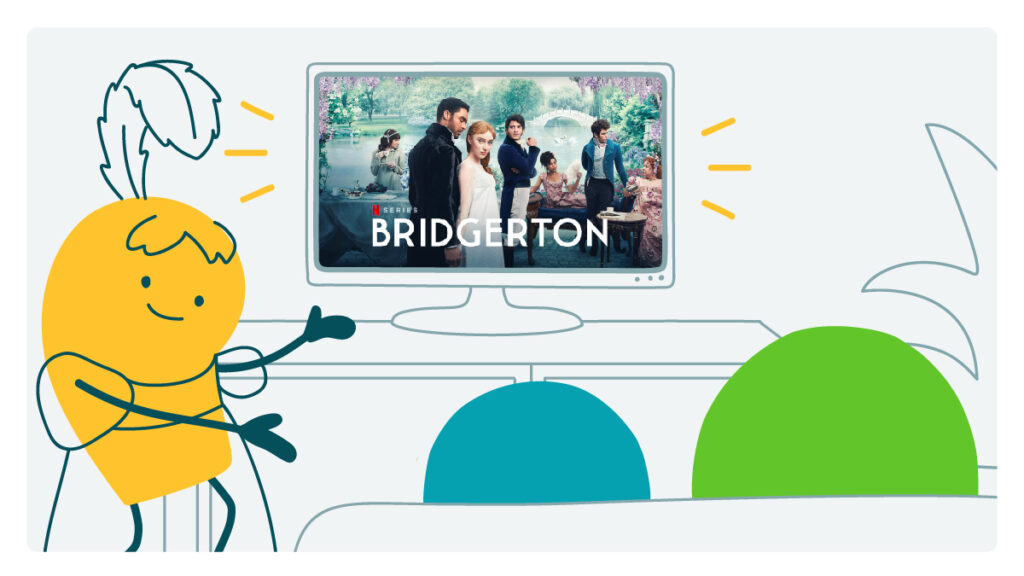
Dearest gentle reader,
If you’re anything like us, you enjoy a good bingeable TV show. As you may have guessed from the opening line, our latest obsession here at We ❤️ Health Literacy headquarters is Shonda Rhimes’ period drama Bridgerton — or, as we call it around here, Netflix’s 23-hour PSA for why we need comprehensive sex education.
Allow us to explain. The show is full of examples of what can happen if young people don’t understand the fundamental principles of human reproduction because sex, and everything to do with it, is considered uncouth to talk about. And yes, we’re aware that the show is 1, fictional and 2, set in the 1800s where this was par for the course — but looking at recent attempts to restrict comprehensive sex education in schools, it doesn’t seem that far-fetched to draw comparisons to the present day. (Spoiler alert: “Abstinence only” didn’t work back then any better than it does now.)
Here are a few examples. In season 1, Daphne’s lack of knowledge about how exactly babies are made leads to the central misunderstanding with her newly minted husband (the Duke). When her maid eventually fills her in, Daphne uses her newfound knowledge to try and trick her husband into getting her pregnant against his will — which clearly warrants a conversation about consent, an integral part of sex education.
Then there’s Penelope’s sisters, who in season 3 race to produce an heir — only it turns out they’re not quite sure about the mechanics of the baby-making process, which is why their efforts haven’t been successful. While this scene is meant to be comic relief in the show, it takes on a much more serious meaning in a world where a woman’s financial and social standing are inextricably tied to her ability to become pregnant and ensure the line of succession.
Knowledge is power — and that part hasn’t changed, whether it’s about trying to get pregnant or avoiding an unplanned pregnancy. Consider Marina who, in season 1, tries to abort her unwanted pregnancy with a cocktail made of herbs that nearly kills her. And if you think desperate abortion attempts without medical care are a thing of the past, think again. With access to safe, legal abortion being cut in many states, more women are turning to unsafe methods to try and end pregnancies. That’s a throwback to Gregorian times that clearly none of us need.
And finally, the men. Oh, the Bridgerton men, uninhibited by the concern for sexual purity placed upon their female counterparts — and apparently also uninhibited by any thought of spreading sexually transmitted infections (STIs) through their casual sexual encounters (yep, STIs were a thing in Gregorian England). Even today, nearly half of new STI cases happen in teens and young adults. What will help? You guessed it — teaching comprehensive sex education in schools, a strategy that’s proven to lower risky sexual behaviors like unprotected sex in young people.
The bottom line: Bridgerton is fun, fashionable, and fancifully entertaining — but it also touches on some very relevant public health topics. On this note, go forth and watch, dear reader!
Yours truly, Lady Whistledown… errr… your friends at CommunicateHealth.
Copy/paste to share on social (and tag us!): It’s TV Club time! CommunicateHealth watches the period drama Bridgerton — and highlights important parallels with today’s public health priorities. Check it out: https://communicatehealth.com/wehearthealthliteracy/tv-club-bridgerton-or-why-we-need-comprehensive-sex-education
Browse recent posts